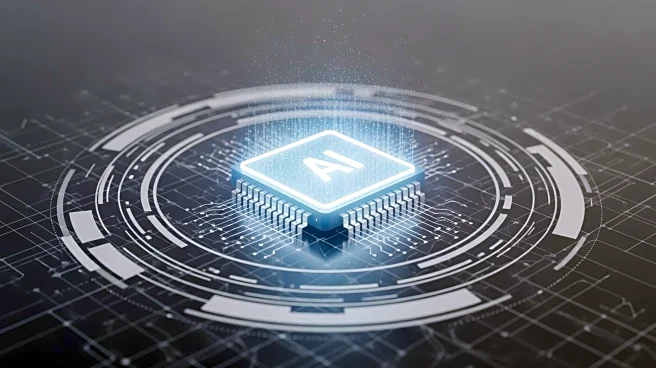What's Happening?
Elon Musk has revealed new details about Tesla's AI5 chip, the next-generation hardware for the company's self-driving program. The AI5 chip, previously known as Hardware 5, will be manufactured by Samsung
and TSMC at their facilities in Arizona and Texas. This chip is designed to significantly enhance Tesla's self-driving capabilities, as well as support Optimus humanoid robots and other AI-driven features. The AI5 is expected to be 40 times faster than its predecessor, AI4, with substantial improvements in compute power, memory capacity, and efficiency. Tesla plans to begin sampling the AI5 chip next year, with high-volume production anticipated by 2027.
Why It's Important?
The introduction of the AI5 chip marks a significant step forward in Tesla's pursuit of fully autonomous vehicles. By enhancing the processing power and efficiency of its self-driving technology, Tesla aims to maintain its competitive edge in the rapidly evolving automotive industry. The collaboration with major manufacturers like Samsung and TSMC underscores the importance of reliable and scalable production capabilities. This development could potentially accelerate the adoption of self-driving cars, impacting transportation, urban planning, and regulatory frameworks. Stakeholders in the automotive and tech industries are closely watching Tesla's progress, as successful implementation could redefine market dynamics and consumer expectations.
What's Next?
Tesla plans to release samples of the AI5 chip next year, with limited deployment in vehicles. Full-scale production is expected by 2027, aligning with Tesla's timeline for the Cybercab production in 2026. As Tesla continues to refine its self-driving technology, regulatory bodies and industry competitors will likely respond with increased scrutiny and innovation. The potential for AI6 and AI7 chips, as hinted by Musk, suggests ongoing advancements in Tesla's technology roadmap, which could further influence the future of autonomous driving.
Beyond the Headlines
The development of the AI5 chip raises questions about the ethical and safety implications of self-driving technology. As Tesla pushes the boundaries of AI capabilities, concerns about data privacy, cybersecurity, and the societal impact of autonomous vehicles will need to be addressed. The collaboration with multiple manufacturers also highlights the complexities of global supply chains and the need for consistency in chip performance, reminiscent of past challenges faced by other tech giants.










